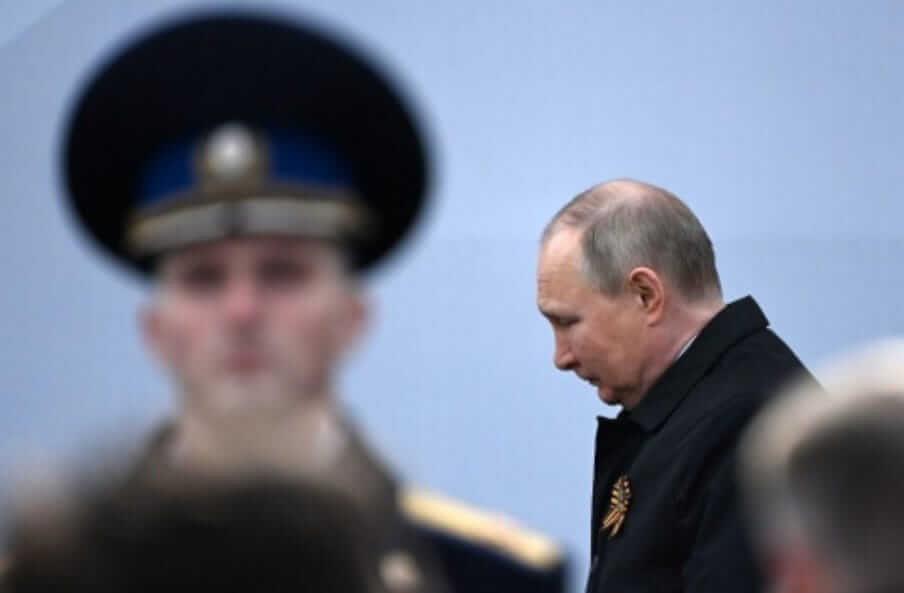When the International Criminal Court indicted Vladimir Putin and issued an international arrest warrant last March, the Kremlin issued an order to talk about it with contempt, and a few additional insults did not hurt. Who has dared to prosecute the leader of a superpower, the commander of the second-largest army in the world and the master of almost 6,000 nuclear warheads?
Putin spread self-confidence, a sense of superiority and untouchability around him. His lackeys were threatening with even stronger nuclear retaliation. Along with the usual targets – London, Berlin, Paris, the International Criminal Court was added to the list of places that needed to be razed to the ground. They did not care about the location.
During that time, fear, for which there was no cure, reigned in the deserted halls of the Kremlin. Putin realised he was persecuted and trapped in his palace and his country, no matter if it was the largest in the world.
India has recently hosted the annual meeting of leaders of the Shanghai Cooperation Organisation. It was a significant opportunity for Putin to meet with Chinese President Xi Jinping and Indian Prime Minister Narendra Modi, whom he considers the most important allies in his military campaign against Ukraine.
But there were no meetings, and they held the summit online. There was no reason for that. There is no more Covid-19, and last year the leaders of the Shanghai Organisation met face-to-face in Uzbekistan.
But last year, there was no arrest warrant for Putin and an indictment stating that he was a war criminal. The fear of travelling abroad was enormous, even in countries that do not recognise the International Criminal Court, such as India. Since the indictment and arrest warrant were issued, Putin has not left the country. And he does not intend to.
He finally cancelled his trip to South Africa for the BRICS summit in August. For months, the Kremlin has been making problems for their friends from South Africa, saying that everything but the arrival of Putin to Johannesburg was out of the question – an online summit or moving the conference to another place like, for example, China.
Desperate South Africans initially wanted to host their friend from Moscow, even though the signatories of the statute of the International Criminal Court are obliged to arrest him if he is within their reach. But, a month before the summit, they called it a day and desperately begged the Kremlin to give up.
And Putin gave up. He knew from the start that he would not travel to Johannesburg, but Putin did not want to let everyone see the fear he had been living in. Only a few days ago, the Kremlin threatened and said that the arrest of their leader would be a declaration of war. There were also rumours that he would travel to South Africa surrounded by a small army of security guards, just in case.
None of that happened. Putin will remain in the Kremlin, and as every time since last March, he will address his allies via video link. BRICS, which aspires to establish a new world order, has not been able to meet in one place.
Sergey Lavrov will represent Putin in South Africa. He still does not have the burden of the indictment for war crimes and the arrest warrant on his back but has a similar experience because of the apostate policies of his government and leader, and he cannot travel where he would like to. Just like in Putin’s case, Moscow aggressively announced Lavrov’s visit to Belgrade a year ago. They defiantly said that no one could forbid them to do so.
They knew very well that nothing would come of that visit because the Russian minister was under Western sanctions and could not travel through European territories – neither he nor his plane, also under sanctions.
Until the last moment, Moscow exerted unprecedented pressure on Serbia and Aleksandar Vučić regarding this visit, putting him in an unbearable situation and practically blackmailing him, just as Putin pressured the South African authorities until a few days ago.
Relief for Belgrade came from the neighbours, members of NATO, who announced that they would not allow the plane of the Russian minister to fly over their territories. They said what Lavrov and Putin already knew but wanted to organise a visit to Belgrade after three months of invading Ukraine to put Serbia and its leader under intolerable pressure.
And not to end it all there, Lavrov cynically announced that he wanted to support the Open Balkan initiative in Belgrade but that the West did not allow him. It was an attempt to cause additional damage to Vučić and the project he launched with Albania and North Macedonia, for which he received support in the West, particularly the US. Moscow has never supported the Open Balkan because it knew well that any reconciliation and progress in the Balkans was detrimental to its colonial interests in the region.
They expressed their support cynically only because they needed to get out of the mess surrounding Lavrov’s failed visit to Serbia and to camouflage the fact that they were an isolated and renegade country whose leaders were not welcomed.
The Russian president is terrified of the isolation the International Criminal Court with its 120 members has put him in. He would never recover from the paranoia of being arrested and convicted of war crimes.
He has also been transferring this fear to his accomplices from the Kremlin, which makes them an ordinary group of cowards. The only thing left for that group was to encourage each other, saying they would drop nuclear bombs on all their enemies and that one day they would conquer the world. Behind all those threats and conquests is one lonely scared to death 70-year-old in the corner.
